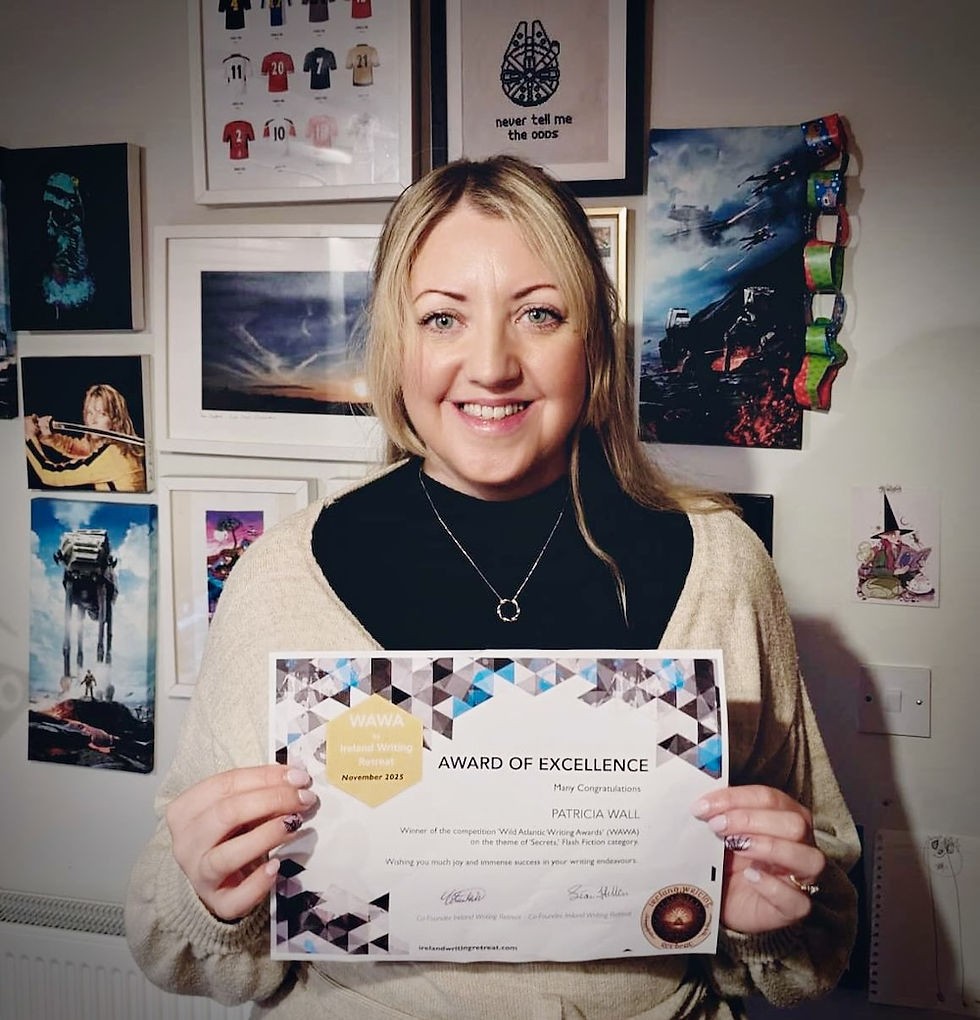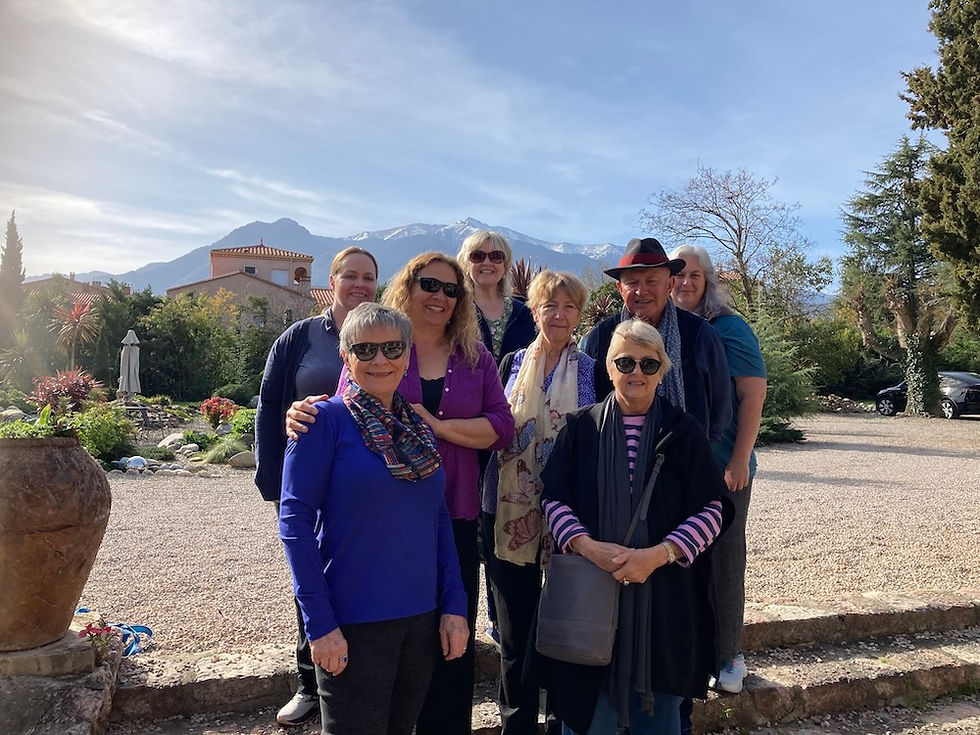Irish ‘landscape laureate’ considers Nature a key element of writing
- columbiahillen

- Nov 9, 2020
- 5 min read
Few authors are more adept at integrating Nature and landscape in their prose than multiple-book, northern Irish crime writer, Anthony J. Quinn.
Living along the Irish border, Quinn – who has been a tutor at ‘Ireland Writing Retreat’ and a judge in our ‘Wild Atlantic Writing Awards’ – utilises his familiarity with the region to set mood and create suspense in his novels, his latest being, Turncoat, to be released on November 26.
As encouragement to those entering our latest 500-word, 1,000-euro flash fiction and creative non-fiction writing competition, Wild Atlantic Writing Awards (Deadline December 10) in which Nature must play an integral role, we asked Anthony to share his thoughts on the subject.
Here is what he had to say.
Landscape is a window into the soul of a country

Although I write contemporary crime fiction with heavy shades of noir, my books are motivated by a quest to understand the spirit of place in post-Troubles Northern Ireland. Sometimes the most unexplored landscape — as deserving of attention as any far-flung destination — is the terrain closest to home. I wanted to take on the landscape I had grown up in and loved and do justice to its beauty. I also wanted to pay tribute to the spirit of the people who inhabited it, and who underwent an extraordinary situation during the Troubles.
Being Irish, landscape for me is much more than geography. It’s a part of my collective identity. It’s also a window into the soul of a country and its troubled history. From the outset, I wanted to create a landscape that would communicate the emotional action of the plot and the looming sense of threat. I also wanted it to be recognisably Irish. I take a guilty pleasure in drawing the reader’s attention to the strangeness of the Tyrone landscape, making them shudder at a gruesome-looking blackthorn tree, a rotting cottage, or a treacherous bog. I wanted readers to feel the dark gravity of the border countryside, its interlocking parishes of grief, its mesh of twisting roads, the sense that out there amid the blackthorn thickets and swirling mists, loose bits of the past are still wriggling their way through the shadows.
The Northern Irish landscape I know and love has its own geography of moods, an interweave of darkness and light, which I find constantly mesmerizing. I’m not sure if my descriptions bear any resemblance to what is actually out there, or if anyone else notices what I see. Perhaps they are more a reflection of a region of my mind. The settings always come first for me, shaping the characters and plots. At heart, I’m a thwarted poet and my muse is Tyrone – its gurgling bogs, its frozen thickets of thorn trees, its mists swirling in from Lough Neagh.

Since childhood, I’ve always wondered what makes the Ulster landscape so mood-enhancing and mystical. For a start it must be one of the most fickle landscapes on these islands because its terrain and weather change so often. How often do you find yourself out walking or driving and in the blink of an eye, you see an old view in a new way, and your thinking and mood changes, or is enhanced dramatically. It’s as if you’ve crossed an imaginary border, the point at which rain or mist begins, or the wind suddenly picks up, and animates the trees, or the sun breaks through the evening sky and bathes everything in light. This is the point at which you feel bewitched, or — as Patrick Kavanagh would have said — you’ve entered fairyland, another more mysterious country within the familiar folds of the fields you’ve always known. The magical or mystical thing about it is that those moments are unbiddable. They are epiphanies that come unannounced and give you an emotional connection with the landscape. I’ve tried to capture these ‘border moments’ within Border Angels and Disappeared, as well as the sequel Silence, which was published in November. This is why my detective character, Celcius Daly, keeps getting lost in the landscape he’s known all his life.
I was especially drawn to Lough Neagh. It’s the largest freshwater lake in Western Europe, but it must be one of the most unappreciated vistas on these islands, a void in the interior of Northern Ireland. Its water level sank about fifty years ago, removing it from the view of local roads and vantage points, so that might be one of the reasons for its hidden nature. In winter, it’s often shrouded in fog, adding to its air of being withdrawn into itself.

It felt like a place accessible only to the imagination, and I thought it might be a useful metaphor for the hidden stories of the Troubles, the amnesia that has been operating in the midst of life here after the Troubles, the void at the heart of the peace process, the plight of victims and their quest for justice, the unsolved murders that have been quietly removed from view.
A lot of Irish crime fiction seems to be based on the belief that the genre functions best in an urban setting. However, the rural landscape I’m trying to describe is as richly textured as any cityscape. The border backdrop of my books is not a vast and unpopulated wilderness. It’s a landscape compacted out of the generations that went before, and full of their mysterious presence; a claustrophobic stage into which too many competing tribes have been crammed, where the past lies cheek by jowl with the present, and where every thorn tree or rock has its own ghost, its own dreadful story to tell.

And here is an extract from Anthony’s latest novel ‘Turncoat’ to illustrate his depiction of Nature.
"The traffic dwindled and the road climbed into County Armagh. In the rear-view mirror, I could see the sprawl of the Lagan Valley, the long flat miles of Belfast and its surrounding towns, their rainy gloom and glitter, and then the gleaming surface of Lough Neagh, petering out into nothingness.
Ahead of me lay a landscape that seemed changeless, while everything behind was passing. The gently sloping orchards of Armagh gave way to the wildness of Tyrone and its drumlins of blackthorn and gorse, the dark, barely cultivated hills and glens of my childhood, a hinterland that made me feel like a lonely orphan in the city, a place stripped back to muddy peat, windtorn bushes, and deep pools of rain.
As always, I had the strange sensation that I had been someone else in Belfast, that I had found a new identity, another face, amid the busy police incident rooms, and smoke-filled bars, and that somehow I had left that face behind me. I rolled down the window and breathed in the sharp purified air of the place I called home. This was the landscape that had once defined the limits of me, and the landscape that had connected me to others; the landscape that had protected me and the landscape that had made me feel vulnerable; the landscape that constantly called me back to who I had been the last time I lived here. But I could never go back to being me.
The road guided me into the night, away from the glare of small towns, Dungannon where I had gone to school, and the blackthorn-hedged fields of the Clogher Valley where I had played as a child. I kept the window rolled down slightly, listening to the sighing of the tyres and the hum of the engine, the car headlamps jumping across treacherous bogland and in and out of motionless forests, imagining that I could hear the sounds of ghosts whispering and creaking all over South Tyrone."








Comments